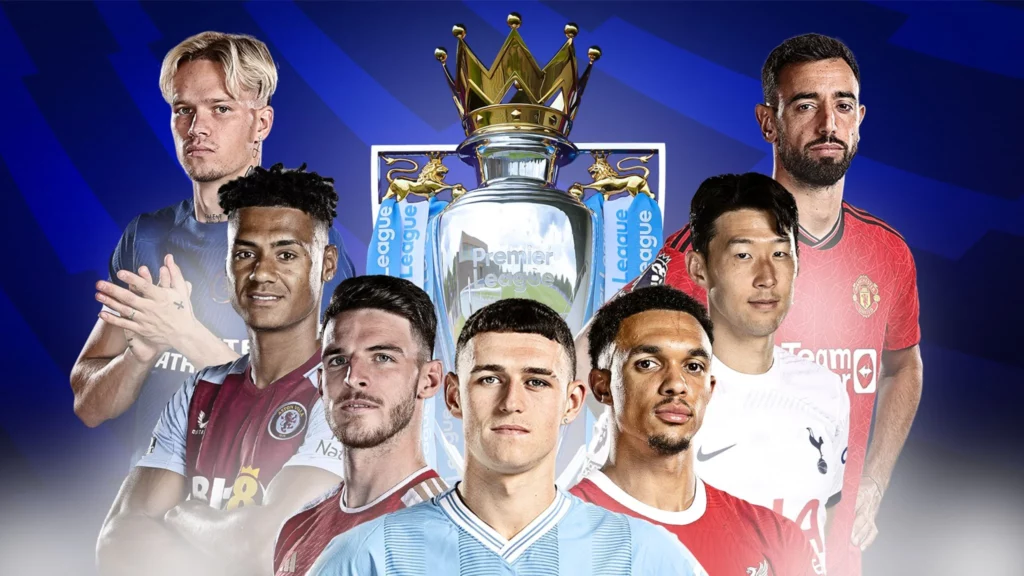
Ipswich Town welcomes Liverpool for the Premier League’s opening weekend, marking their return to the top division after 22 years. The match is set for Saturday, 17 August. Defending champions Manchester City begin their campaign away at Chelsea on Sunday, 18 August.
The season starts with Manchester United hosting Fulham at Old Trafford on Friday, 16 August. Arsenal, last season’s runners-up, will face Wolves at home on Saturday. Meanwhile, Aston Villa, who finished fourth last season, are set to travel to West Ham for their opening match on the same day.
Weekend Premier League Roundup: New Faces and Title Defenders
Championship playoff victors Southampton will play against Newcastle at St James’ Park. The Saturday fixtures will also see Everton hosting Brighton and Nottingham Forest taking on Bournemouth.
On Sunday, Brentford will greet Crystal Palace, and Championship champions Leicester City are set to host Tottenham on Monday, 19 August.
Reflecting on the past, Ipswich’s last Premier League appearance ended in a 5-0 defeat by Liverpool at Anfield on the last day of the 2001-02 season. This came just a year after their remarkable fifth-place finish in the top division.
City celebrated their fourth consecutive English league title in May, narrowly finishing two points ahead of Arsenal.
Season Highlights and Key Matches
Simon Stone, our chief football news reporter, breaks down crucial match sequences and notable fixtures for the upcoming season. Manchester City has a challenging schedule with only two home games out of seven before the Champions League matches. Aston Villa faces a tough post-Champions League stretch with five away games out of seven. The longest journey on Boxing Day will see Aston Villa traveling 200 miles to Newcastle. Notably, there will be a full slate of fixtures during the FA Cup final weekend, though none on Saturday, May 17, when the final takes place. Key clashes include Arsenal’s consecutive away games at Tottenham and Manchester City around the first Champions League matchday, and Manchester City’s trips to Tottenham and Liverpool around the fourth matchday. Manchester United and Liverpool will face off right before the September international break, while Tottenham and Arsenal battle immediately after. Everton will play their last-ever league match at Goodison Park against Southampton on May 18, coinciding with the FA Cup final weekend. Lastly, Liverpool kicks off their season with an early 12:30 game, a timeslot previously criticized by former manager Jurgen Klopp.
Premier League 2024-25 Season Overview
The 2024-25 Premier League season is set to begin on Friday, 16 August and will conclude on Sunday, 25 May 2025, with all matches kicking off simultaneously. This season will span 33 weekends, include four midweek rounds, and feature a special round on Boxing Day, 26 December. Unlike previous years, there will be no round on New Year’s Day.
The FA Cup’s third round has been rescheduled to the second weekend in January, moving away from its usual timing. Notably, this season will not have a winter break, and the unique Christmas Eve match from the previous season will not occur again. The league has committed to ensuring that no club will have to play two games within a span of less than 60 hours during the festive period. International breaks are planned for September, October, November, and March.
Tough and Easy Starts: Premier League Teams’ Fixtures Revealed
Opta’s data has analyzed the first five fixtures for each Premier League team this season. Brentford and West Ham have the joint-toughest starts, facing three of the ‘big six’ and teams competing in Europe. Liverpool, however, have the easiest start, with four of their first five games against lower-table teams or newly promoted sides. Newcastle’s start is also favorable, with only Tottenham in the top half of last season’s table among their first five opponents. Meanwhile, Manchester City have the easiest final ten fixtures, with only three top-half teams remaining, while Fulham face a tough finish with six matches against European competitors.































